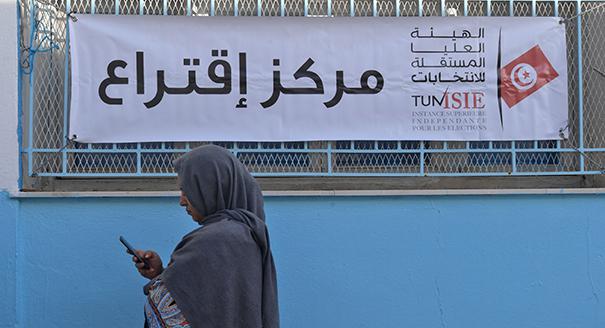Tunisia is widely admired as the only success story of the Arab Spring. Its democratic achievements are indeed admirable. The country held free and fair elections in 2011, 2014, and 2019. It enshrined basic rights in a new democratic constitution in 2014. And Tunisia overcame serious security challenges between 2012 and 2015. In contrast to the other countries in the region that faced popular uprisings in 2010–1011—Egypt, Syria, Libya, and Yemen—Tunisia is the only one that emerged as a functioning democracy.
However, today the country seems adrift, unable to move forward either economically or politically. The economy has been stuck for years in a pattern of low growth and high unemployment. And the political system has so far been unable to translate the results of the parliamentary elections of 2019 into an effective government. While popular support for the democratic system remains strong, the lack of progress in the economic and political spheres is putting the country’s democratic transition at risk. Further efforts to address these weaknesses are needed to put the country back on a more secure path.
Tunisians generally describe the essential objectives of the 2011 uprising as “freedom and dignity.” The “freedom” goal has seen much success. Political parties of all stripes compete freely in elections, the press operates largely without restrictions, and a vibrant civil society keeps tabs on the political process. But when it comes to “dignity,” most Tunisians express disappointment in what has been achieved. While the search for dignity has many aspects, a key underpinning is the ability to gain the economic resources to live a life in a dignified way—getting married, owning a home, raising children. Yet Tunisia’s economy has not produced the jobs and economic opportunities that are necessary to enable such a life for many people, especially in the country’s impoverished interior.
Turning this situation around will require significant changes to the Tunisian economic model. Addressing endemic corruption in the system is essential—this was a major theme in the recent elections—but it is not enough. The environment for starting or operating a private business remains much too restrictive. The next government must tackle the web of regulations that stifle the private sector and facilitate corruption. In addition, it needs to create incentives for entrepreneurs to expand beyond traditional export sectors and markets. Tunisia needs to do more to leverage its well-educated workforce and prime location between Europe and Africa to expand the volume and value of its exports.
The presidential and parliamentary elections in 2019 produced an unusual outcome. It brought to power a president, Qaïs Sa‘id, with no previous experience in government and no organized political base, alongside a fractured parliament unable to agree on the composition of a new government. In early January, prime minister-designate Habib Jemli’s proposed cabinet was overwhelmingly rejected by parliament. Sa‘id has now nominated a former finance minister, Elias Fakhfakh, as prime minister. He will have a month to form a government. If he also fails, new elections will have to be held.
Tunisia seemed to emerge from the previous elections in 2014 with the beginnings of a two-party system. The Islamist Ennahda, led by Rashed Ghannouchi, and Nida’ Tounes, founded by the late president Beji Caïd Essebsi, dominated the parliament that was elected in 2014. Between them, these two largest parties held 155 out of 217 seats.
Nida’ Tounes, however, quickly began to unravel in 2015, as its disparate elements lacked a common ideology other than their opposition to Ennahda. Successive splits within the party resulted in a proliferation of smaller parties in the non-Islamist camp. By 2019, Nida’ Tounes itself gained only 1.5 percent of the vote and essentially disappeared from the political landscape.
Ennahda has also lost much ground in recent years, dropping from 27.8 percent of the vote in the 2014 parliamentary elections to 19.6 percent in 2019. Its influence declined further when Jemli, its candidate for prime minister, was unable to win a parliamentary vote of confidence earlier this month. Aside from Ennahda, only one other small Islamist party supported Jemli.
Whether a new government is formed by Fakhfakh, or whether new elections are held, Tunisia’s next government should give priority to addressing the country’s urgent need for economic reform. This will not be easy, as vested interests that have done well under the current system will continue to resist change. Political leaders from a broad swath of parties will need to put aside their ideological differences to focus on the need for economic progress. Sa‘id could play an important role in making this possible. He could, for example, convene stakeholders from government, the business community, and organized labor to begin a dialogue to agree on general principles to move the economy forward.
The country also needs to consider how to reform the political system to prevent a repeat of the results from the 2019 parliamentary elections, when some 20 political parties made it to parliament, not counting independent lists. Only two parties—Ennahda and Nabil Qaraoui’s Qalb Tounes, or Heart of Tunisia Party—got more than 7 percent of the vote. An astonishing thirteen parties made it into parliament with less than 3 percent of the vote. This situation is not healthy for a democratic system, and Tunisia should consider establishing a threshold for parliamentary representation. This would force smaller parties to combine, making for a more manageable, less fractured legislature. This too will not be easy, as changes to the electoral law will require the assent of the existing parliament and its assemblage of small parties.
Tunisia still has much to be proud of in the nine years since it rid itself of the authoritarian regime of former president Zine al-‘Abedin bin ‘Ali. But if it wishes to continue to move forward with its democratic transition, some serious reform is needed to promote economic development and streamline the political process.






